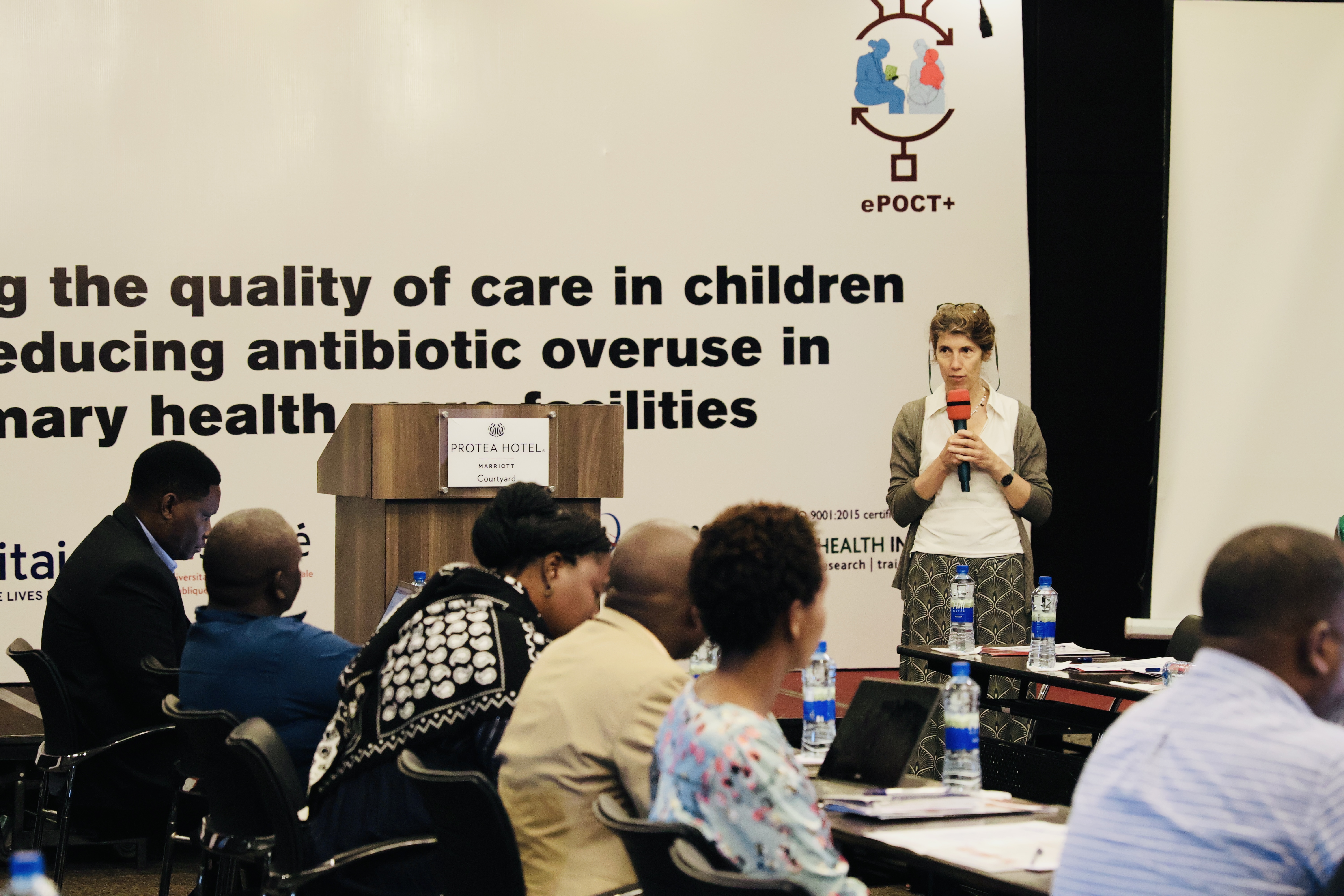
DISSEMINATION: Scaling digital health interventions in primary healthcare

Today, two studies: DYNAMIC – conducted by the Ifakara Health Institute and the National Institute for Medical Research - Mbeya, and the Tools for Integrated Management of Childhood Illness (TIMCI) - conducted by PATH, hosted a Stakeholder Dissemination Meeting to share findings on the safety and efficacy of ePOCT+ in reducing antibiotic prescriptions to primary healthcare stakeholders from the government and private sectors.
The dissemination meeting featured an introductory presentation to ePOCT+ clinical decision support algorithm that helps front-line health workers to manage sick children from 1 day to 14 years. The goal is to promote treatment guidelines adherence, and to reduce the use of antibiotics.
The presentation done by Dr. Chacha Mangu, a Senior Researcher at the NIMR - Mbeya took participants through the Tanzanian developed tablet-based tool which requests specific symptoms, clinical signs, measurements, and test results, and the algorithm provides recommendations for diagnoses, treatments, management, and referral.
A reduction of antibiotic prescription
Health facilities in Morogoro, Tabora and Tanga participated in both studies to evaluate the safety of ePOCT+ and its effectiveness in reducing antibiotic prescription.
The studies were conducted by lfakara, NIMR, and PATH (TIMCI), in collaboration with the Swiss Tropical and Public Health Institute, Unisanté, and the Swiss Federal institute of Technology Lausanne.
More than 100 health facilities participated and more than 150,000 hospital visits have been attended using ePOCT+. Preliminary findings show a threefold reduction in antibiotic prescription in patients who were treated using ePOCT+ compared to routine care from 70% to 23% over a three year period.
Gov’t commitment
Participants in the meeting included Ntuli Kapologwe, Director of Preventive Services in the Ministry of Health who expressed gratitude to the partner institutions for co-creating with the Ministry and emphasized the need for continued collaboration in ensuring scalability and sustainability.
In his opening remarks, the guest of honor, Dr. Hamad Nyembea, the Deputy Director of Curative Services in the Ministry of Health, thanked all the participating institutions for the work done so far and acknowledged the positive impact of the project, reaffirmed the government's commitment to continuing to support such projects.
All attendees had the chance to experience the tools firsthand through a live demonstration session, during which the DYNAMIC team fielded questions and interacted with the participants.
“Technology is only the means and not the solution”
In closing Prof. Valerie, who is the DYNAMIC and TIMCI Principal Investigator challenged the audience to use this tool in the “correct way”. She said technology is only good if it's used properly and by itself it cannot solve anything. The tool needs to be critically evaluated to understand if it really is beneficial for the people of Tanzania.
The meeting was an opportunity for stakeholders to network for integration and possible collaborations, integration with existing tools, policy translation, and further collaborations.
